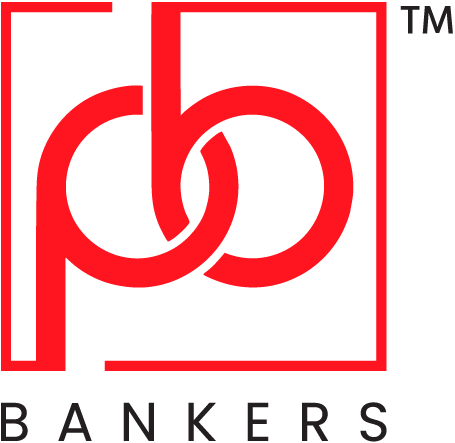Infinite Banking for Business Owners and Entrepreneurs in Canada

Are you controlling your business… or your business is controlling you? Well, this article is for you. This is the Infinite Banking for Business Owners and Entrepreneurs in Canada.
Many business people are in an endless loop of looking for finances to expand or keep their businesses in operation. This is usually followed by tireless efforts to repay the lenders, and this cycle continues until the company is financially stable in some instances.
Even so, when you try to expand your business or explore new investment opportunities, you may find yourself starting the process of borrowing, lending, or equipment financing afresh.
However, there is a better way to safeguard and take full charge of your business’s financing needs through a strategy that can enable you to enhance and protect personal wealth. In fact, this strategy allows you to generate retirement income tax-free. This method is called the Infinite Banking Concept.
Why You Should Incorporate Infinite Banking Concept in Your Business in Canada
Infinite Banking isn’t a scheme to make you rich quickly. It’s simply a smart financial strategy that has existed for over a century. Prominent families and big companies, including Disney, JP Morgan Chase, and McDonald’s, have implemented this strategy for over 100 years.
With that in mind, the Infinite Banking Concept in Canada is also an advanced financial strategy. Therefore, if it’s a strategy that can work for your business, you need to seek guidance from an expert who will guide you throughout the process of structuring and maintaining the plan. You should begin by getting advice from a qualified life insurance expert with experience designing Infinite Banking policies that result in maximum cash value growth in the initial years.
What is the Infinite Banking Concept?
Infinite Banking involves “overfunding” a whole life (permanent) insurance policy to boost the cash value growth, then utilizing the cash value as collateral for loans. You use the policy loan to fund significant purchases such as inventory, business equipment, vehicles, property, or other expenses.
The Infinite Banking Concept primarily advocates using your assets for costly activities instead of borrowing loans from conventional lenders such as banks. Through this, you gain full control of your finances.
The idea behind the Infinite Banking Concept (IBC) is to use your own assets for significant cash needs rather than taking out loans from a bank or other lender. This enables you to gain complete control over your funds. Taking control of your money gives you more power. You avoid paying interest to a bank or lender, and your policy’s cash value keeps growing while your money is used to finance big purchases.
You gain greater control over your finances, preventing the outflow of interest payments to external banks or lenders. Also, it enables your policy’s cash value to keep accruing returns while funding significant purchases simultaneously.
You are simply leveraging your policy’s cash value as collateral for a policy loan. You can use the loan to invest in assets, including cash-generating businesses, your own entrepreneurial ventures, or real estate. You later repay the loan by paying back the insurance company instead of paying back to a third-party lender. The best part is that your cash value keeps earning compound interest on the whole balance, as you also create income from the asset you financed with the loan. In other words, you are basically utilizing one dollar to generate revenue in two different avenues.
Why Should You Use Whole Life Insurance in Infinite Banking Strategy?
In the Infinite Banking Concept, dividend-paying whole life insurance is the primary asset, acting as a “wealth storehouse.” These policies ensure the growth of cash value at a guaranteed interest rate. Furthermore, policies acquired through mutual insurance carriers may qualify for dividends – tax-free returns of premium that can bolster the cash value, amplifying its growth potential. While dividends are not assured, certain mutual insurance companies have a track record of consistently distributing them for over a century.
The cash value account of a whole life insurance policy grows tax-deferred, meaning it incurs no taxes on gains until withdrawal. Instead of withdrawing cash, you can borrow funds from a whole life insurance policy tax-free.
Accruing interest on the policy loan can be highly beneficial because life insurance policy loans usually operate on a close-to-wash basis. You earn nearly as much interest in the policy as you pay on the loan.
Moreover, policy loans offer the following advantages:
- They are easier to get than bank loans or lenders since no stringent loan requirements or credit checks exist.
- They are disbursed quickly, often within a few days.
- They maintain privacy because they are not reported to credit bureaus and, therefore, do not appear on credit reports.
- You can utilize your loan for any purpose as per your needs.
Since insurance policy loans utilize the policy’s cash value as collateral (issued directly by the insurance company), interest will continue to accrue on the total sum of the policy’s cash value.
A whole life insurance policy has a guaranteed cash value, ensuring a level of certainty and predictability. This safeguard extends to both the principal and previous gains, independent of stock market fluctuations, as whole life insurance is a non-correlated asset. Consequently, growth can continuously compound, potentially leading to exponential accumulation over time.
Whole life insurance, being a type of life insurance, incorporates a death benefit component. This component serves as a financial safety net for loved ones in the event of the policyholder’s death. The beneficiaries receive the death benefit proceeds tax-free, offering additional financial security.
You need to keep in mind that not all whole life insurance policies are suitable for Infinite Banking in Canada. This strategy requires a properly designed policy with necessary add-ons, such as riders, to enhance its effectiveness.
Benefits of Infinite Banking to Business Owners and Entrepreneurs

As an entrepreneur, you can secure access to capital whenever you need by creating a personal banking system with whole life insurance. This ensures funds are readily available to support new ventures, scale operations, or capitalize on additional profit-making prospects.
Furthermore, Infinite Banking can serve as a cash flow management system for businesses, replacing reliance on conventional bank accounts. The advantage lies in the fact that while your funds sit within an Infinite Banking policy, they generate significantly higher returns than regular savings accounts offered by major banks. Typically, these returns exceed those of CDs or money market accounts. Additionally, the gains are tax-deferred.
Here are some additional benefits of integrating infinite banking into your business strategy:
Minimizing Risks
Whether a business is just starting or has established itself in the market, it inevitably encounters various risks. However, an infinite banking strategy can mitigate businesses’ need to assume additional risks across multiple fronts. Infinite Banking typically revolves around a well-structured dividend-paying whole life insurance policy, recognized as one of the safest assets within the financial landscape.
Consider this: banks across the United States hold substantial amounts of life insurance, creating a distinct accounting category for these assets known as BOLI (Bank Owned Life Insurance). BOLI is classified as a Tier 1 asset, indicating regulators regard it as one of the safest investment options within regulated entities.
Consequently, business owners who possess an Infinite Banking policy can rely on both the death benefit and the cash value is accessible for financing needs while also serving as a safety net for their loved ones in unforeseen circumstances.
Providing Future Liquidity for Business Growth
The cash value within an Infinite Banking policy presents an avenue for supplying future liquidity to fund and expand your business. Leveraging a properly structured whole life insurance policy for startup expenses is a viable alternative to seeking capital from traditional sources such as banks, venture capitalists, or the SBA (Small Business Administration).
Depending on your business’s nature, funds from an Infinite Banking policy can serve various needs, including:
- Procuring business equipment and supplies
- Acquiring inventory
- Investing in physical assets like land, buildings, or warehouses
- Meeting tax obligations
Businesses require a secure venue to store their capital, ideally one that generates returns without jeopardizing the principal or previous gains. While money markets and bank accounts provide storage options, they offer minimal returns.
In contrast, whole life insurance policies offer tax-deferred compound growth while ensuring principal preservation. Additionally, they offer liquidity, enabling access to funds during lean profit periods or for significant purchases like inventory and equipment.
Moreover, the cash value in a whole life insurance policy can aid in securing financing, even for ventures deemed “too risky” by traditional banks and lenders. No loads of paperwork or credit checks are required; upon notifying the insurance company of the necessary amount, you can receive cash in a matter of days.
An added advantage is that a life insurance policy’s cash value is often shielded from creditors and lawsuits, providing an additional layer of security in case of legal challenges.
Offering Succession Solutions and Legacy Planning
Many individuals desire to leave behind a lasting legacy. This may involve contributing to favorite charitable causes, funding the future education expenses of loved ones, or supporting other philanthropic activities. With Infinite Banking, one avenue for creating a legacy beyond the business realm is through the death benefit of a life insurance policy.
Furthermore, as previously discussed, an Infinite Banking strategy can facilitate the development and funding of plans for business succession or sale when the business owner is no longer able or willing to manage it.
Transitioning business ownership may require the incoming owner or partner to secure funding to acquire the former owner’s stake. Preemptive strategies can be implemented to establish a roadmap and funding mechanism for this transition.
For instance, if multiple company owners exist, each could purchase a policy on the other owner(s) to finance a buy-sell agreement, designating the business as the beneficiary. In the event of an owner’s death, the proceeds from the death benefit can enable the surviving owner(s) to acquire the deceased’s business shares.
This approach also benefits the deceased’s surviving spouse or loved ones, as the death benefit proceeds can be disbursed to them to facilitate their exit from the company. This, in turn, provides them with liquidity for income replacement, debt settlement, or other financial needs.
Providing Additional Revenue Streams for the Business
An Infinite Banking policy can be an additional revenue source for business owners. This may involve offering an alternative income stream during slower periods, such as the off-season, for businesses that experience peak cash flow only at certain times of the year. Income generated through a policy loan from the cash value is also received tax-free.
Furthermore, it’s possible to profit by taking out a loan from the cash value. For instance, if funds are borrowed at an interest rate of 6% and invested in a business opportunity yielding a return of 10%, the business owner or borrower stands to gain.
Creating Tax-Free Retirement Income
A properly designed participating whole life insurance policy can function as a tax-free cash flow generator to supplement retirement income. You can access policy funds through withdrawals or loans.
While cash value withdrawals incur taxes on gains exceeding the contributed amount, loans are obtained tax-free. This proves highly advantageous in high-income tax environments. Moreover, these funds do not affect the taxability of Social Security retirement benefits, potentially resulting in increased spendable income from this source.
When borrowing from an Infinite Banking policy, interest continues to accrue on the entire cash value amount since the loan is essentially secured against the policy’s cash value.
For example, if your policy’s cash component holds $80,000 and you borrow $30,000, interest accumulates on the entire $80,000 even as you utilize the borrowed funds for other purposes.
Additionally, even if the loan balance remains unpaid at the insured’s death, the outstanding balance will be settled using proceeds from the policy’s death benefit, with the remaining funds distributed tax-free to beneficiaries.
How to Get Started With Infinite Banking for Business in Canada Top of Form

In Nelson Nash’s view, as outlined in his book “Becoming Your Own Banker” and his creation of the Infinite Banking Concept, he suggests that individuals should engage in two businesses: the primary one where they earn their livelihood, and the secondary one is the banking business that finances their primary endeavors. He emphasizes the significance of banking, stating that while businesses may rise and fall, banking remains an enduring aspect of financial stability.
Setting up your Infinite Banking strategy involves several key steps, including:
- Buying a well-structured whole life insurance policy with a high cash value from a mutual insurance company.
- Incorporating the necessary policy riders to enhance functionality.
- Funding your policy.
- Utilizing policy loans from the cash value to finance purchases or cover business expenses.
- Repaying the borrowed funds.
- Repeating the process as needed.
Opting for a dividend-paying whole-life policy from a reputable mutual insurance carrier is highly advised when setting up an Infinite Banking plan. These policies come with various guarantees, in addition to:
- Tax-advantaged growth
- Principal protection, irrespective of market conditions
- Access to policy loan provisions
- Death benefit coverage serves as a financial safety net for your beneficiaries.
You should also be able to include different riders to customize the policy. Two common whole life insurance riders frequently employed with the Infinite Banking Concept are:
- Paid-Up Additions (PUA): This rider enables the policyholder to acquire additional death benefits and increase cash value.
- Term Life Rider: This rider provides term life insurance coverage, convertible to permanent death benefit protection at a later date.
When structuring your Infinite Banking policy, balancing keeping the death benefit low while maximizing the cash value for optimal accumulation and growth is essential. One crucial consideration is to avoid converting the policy into a Modified Endowment Contract (MEC), as this could result in the loss of its tax advantages.
Final Thought
While the Infinite Banking Concept offers numerous advantages for businesses, it’s not a one-size-fits-all solution, and its implementation involves various complexities.
Therefore, it’s crucial to determine whether an Infinite Banking policy aligns with your business goals and to seek guidance from experienced professionals to set up a plan correctly.
At PB Bankers, we can offer you the assistance you need. If you need help determining whether a properly structured whole-life policy and the Infinite Banking Concept suit you and your business, we’re here to offer detailed information and answer any questions you may have.
Kyla Lovell is a financial expert that teaches the Infinite Banking concept utilizing whole life insurance. This concept creates financial wealth by creating your own personal bank. Get your free Infinite Banking report for more information on the concept.
Quick Contact